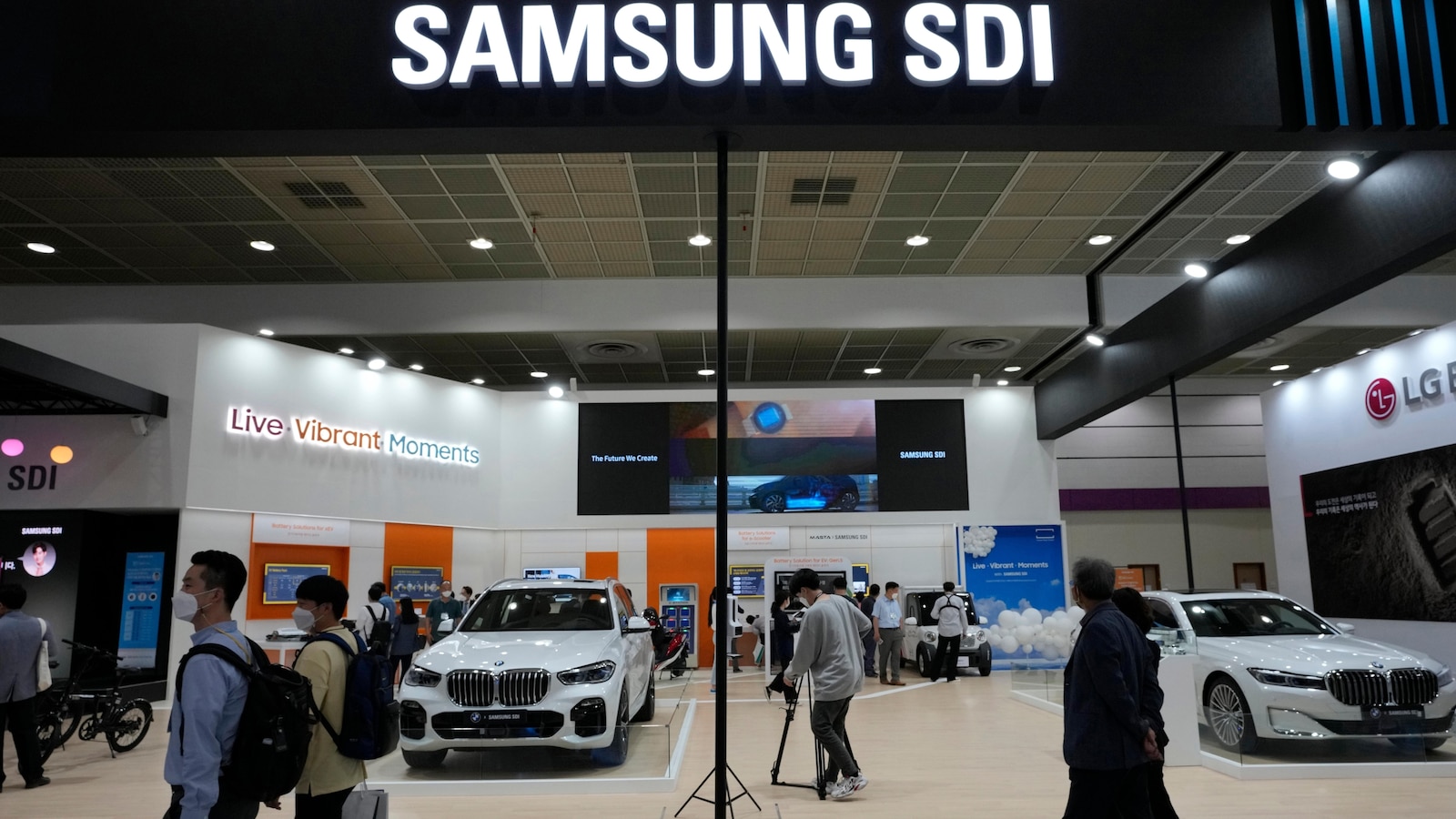
DETROIT — Production at an electric vehicle battery cell plant jointly run by General Motors and Samsung SDI has been delayed as EV sales have slowed in the U.S.
The companies finalized their agreement Tuesday to jointly run the new factory in New Carlisle, Indiana, near South Bend, but said production would not start until 2027. Previously the plant was expected to start making cells in 2026.
The delay will be less than a year, due to market conditions and working out contract details, GM said. Construction of the factory is already under way.
Electric vehicle sales in the U.S. are still growing but have slowed as more practical consumers worry about range and the ability to recharge while traveling. Market leader Tesla Inc. has cut prices, forcing others to follow.
U.S. electric vehicle sales overall rose about 7% during the first half of the year to 599,134, Motorintelligence.com reported. EVs accounted for 7.6% of the U.S. new vehicle market, about the same as it was for all of last year. Lease deals, which include federal tax credits, helped to boost sales.
GM and Samsung announced the joint venture in June of last year. The $3.5 billion plant is being built on a 680-acre site and is expected to employ 1,600 workers. It will make nickel-rich prismatic batteries that store more energy than other chemistries, lowering costs and improving driving range, the companies said.
The plant also will help Samsung get into the North American EV market, selling cells to other companies.
The project is GM’s fourth joint venture battery cell factory. It has announced three others with South Korea’s LG Energy Solution. A 900-worker factory near Warren, Ohio, already is making cells, as is a plant in Spring Hill, Tennessee. Another in Lansing, Michigan, is being built.
GM switched to Samsung after several recalls of Chevrolet Bolt electric vehicles equipped with LG batteries due to manufacturing defects that could cause fires.
Automakers mainly in the U.S. and Europe have delayed battery and electric vehicle production as sales have slowed. Last week, Ford announced it would postpone a new big electric pickup truck by 18 months and scrub a new large electric SUV with three rows of seats. Instead it will focus on electric midsize pickups and a commercial van, as well as gas-electric hybrids.
General Motors (GM) has announced that it will be postponing the opening of its electric vehicle battery factory in Indiana. The factory, which was originally scheduled to open in 2023, will now be delayed until further notice. This decision comes as GM continues to navigate supply chain challenges and disruptions caused by the ongoing global pandemic.
Despite the setback, GM has also revealed that it has secured a partnership with Samsung to supply battery cells for its electric vehicles. This partnership marks a significant step forward for GM as it works towards its goal of transitioning to an all-electric future.
The collaboration with Samsung is expected to bring advanced battery technology to GM’s electric vehicles, enhancing their performance and range. Samsung is a leading manufacturer of lithium-ion batteries and has a strong track record of innovation in the electric vehicle space. By partnering with Samsung, GM aims to stay at the forefront of the rapidly evolving electric vehicle market.
The decision to delay the opening of the Indiana battery factory may be disappointing for some, but GM remains committed to investing in electric vehicle technology and infrastructure. The company has already made significant strides in this area, with plans to launch 30 new electric vehicles globally by 2025.
GM’s partnership with Samsung is just one example of the company’s efforts to accelerate the adoption of electric vehicles and reduce emissions. By leveraging Samsung’s expertise in battery technology, GM hopes to deliver high-quality electric vehicles that meet the needs of consumers while also helping to combat climate change.
In conclusion, while the postponement of the Indiana battery factory opening may be a temporary setback, GM’s partnership with Samsung signals a bright future for the company’s electric vehicle ambitions. With continued investment in electric vehicle technology and strategic partnerships with industry leaders like Samsung, GM is well-positioned to lead the charge towards a more sustainable transportation future.


